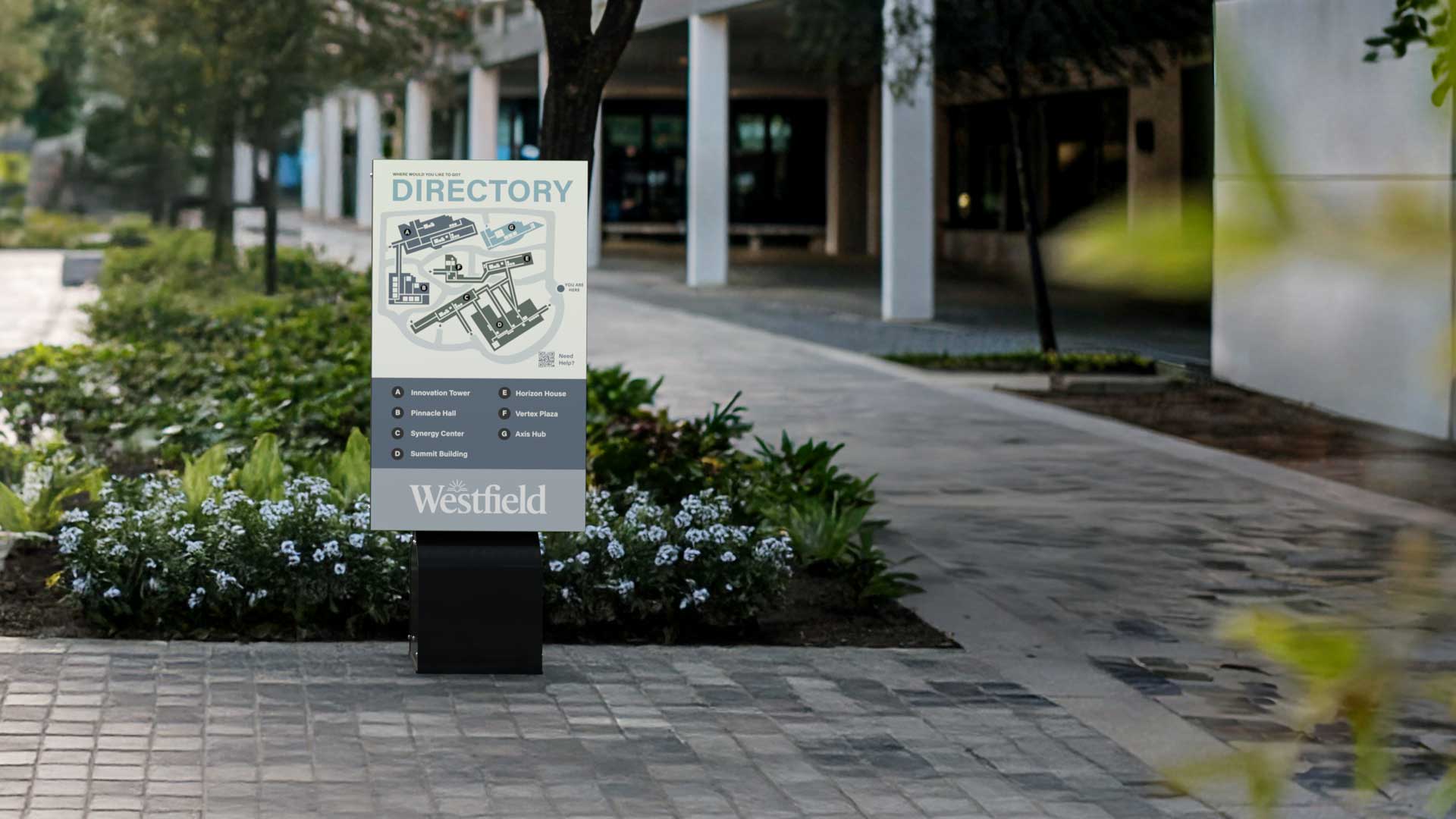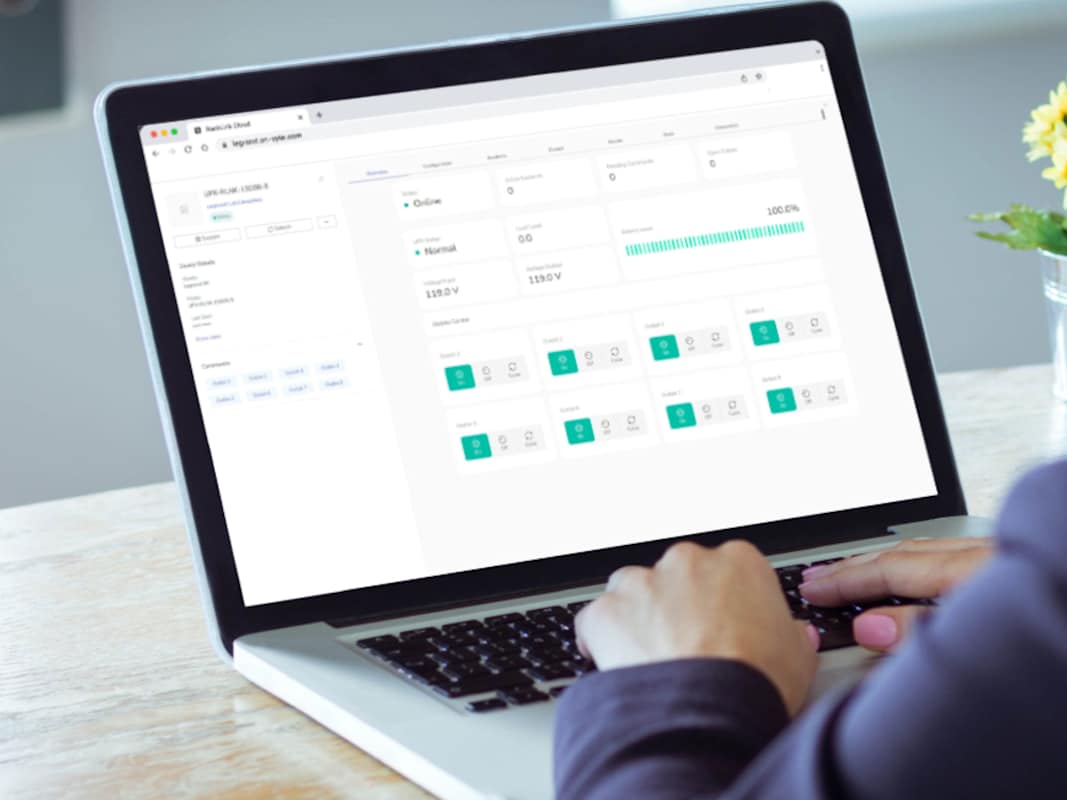Why Remote Power Management is Essential
Today’s AV systems support critical operations, from virtual classrooms to digital signage. Their complexity means that when issues arise, troubleshooting can be time-consuming and disruptive. Traditionally, technicians would have to visit the site to reboot or diagnose systems, often at considerable expense. Remote power management can eliminate the need for most onsite visits by enabling technicians to monitor and control systems from anywhere. Advanced features, such as power monitoring and automated alerts, further allow for proactive maintenance, reducing downtime and improving system reliability.
How It Works
Remote power management allows technology professionals to control power delivery through a web interface, app, or cloud-based system. This technology enables simple tasks like rebooting devices remotely but can also detect and mitigate more significant issues. For example, in a campus environment, a UPS with monitoring capabilities can identify voltage drops during peak energy usage and provide backup power to prevent disruptions.
Applications Across Industries
Remote power management is crucial in all AV verticals, with each facing unique challenges.
Corporate & Government

Educational Institutions

Retail & Digital Signage

What are the benefits of Remote Power Management?
Proactive MaintenanceFirst, remote power management provides proactive maintenance down to the outlet level. Remote power management systems can take preemptive action by setting rules and alerts for conditions such as voltage anomalies, unusual power consumption patterns, or when devices become unresponsive. This could include automatically resetting power to specific outlets or notifying support staff of potential issues, preventing system failures before they occur. |
Data AnalyticsRemote power management systems can be programmed to power down equipment at the close of business and power up before the day begins or adjust power states based on room schedules — ensuring AV systems are active only when needed. During power outages, a UPS can prioritize critical devices to remain powered up, extending runtime and preserving essential functions until the power returns or the equipment can be properly powered down. |
Energy ConsumptionHow much power is a system using? The energy that an AV system consumes is key to operational efficiency and cost management. Modern PDUs can monitor and provide detailed insights into a system's energy usage, down to the individual outlet, offering a granular view of power consumption across different components. A UPS can monitor the entire system's energy usage, providing a holistic view. With this data, organizations can identify opportunities to reduce consumption and lower costs, making informed decisions about when and how AV systems operate. |
AVaaSRemote power management solutions fit right into AV as a service (AVaaS), giving integrators the ability to control individual outlets, monitor temperature and humidity, track voltage problems, detect power surges, deliver warnings of potential problems, and even automatically ping equipment to make sure it’s online and connected to the network. What’s more, they allow integrators to schedule downtime and sequence equipment on/off in the right order — especially important for sensitive audio equipment and displays. When such a solution is used with other tools that can troubleshoot or update devices such PTZ camera, integrators can increase the value of their AVaaS with such a comprehensive offering. |
Longer Life, Greater ROIWhen power issues such as undervoltage are prevented or when scheduling is utilized, AV devices can live out their full lifespan. And with so many devices now in many more spaces, customers can help cut costs and reap a much greater ROI. |
And More!The intangible cost that can’t be overlooked is how remote power management solutions strengthen customer relationships. With the above-mentioned capabilities, problems can be proactively solved before the client is even aware of them. AV pros can respond faster, do the job faster and more inexpensively, and most of all, improve the user experience. |
Choosing the Right Solution
No two AV installs are the same, which is why Middle Atlantic’s remote power management and backup systems are available in models and sizes to fit the needs of the install. PDUs are available in several form factors: horizontal rackmount, vertical, compact, as well as half rack. Likewise, where backup power is needed, UPS can feature a deep level of intelligence and control. Understanding the features, circuitry, security, user interfaces, and form factors is key in selecting the platform that meets your AV system needs for remote management, whether in corporate, education, retail, or digital signage.
The best solutions today offer a range of PDUs and UPSs that provide the ability to remotely control and monitor power distribution with varying features to support all your applications. These include:
| individual outlet control | mobile control | autoping | scheduling | email alerts | event logging | power metering | individual outlet metering |
| password protection | network security | environmental sensing | basic or two-stage MOV protection | stepped and custom sequencing | amp options | and more! |
Middle Atlantic’s RackLink™ PDUs and UPSs offer advanced capabilities tailored to AV environments, ensuring reliable power delivery and proactive system management.
Smarter Power for Modern AV Systems
Remote power management is essential for modern AV systems. These solutions ensure reliability, save time and money, and protect valuable AV investments by enabling proactive troubleshooting and maintenance. Advanced PDUs and UPSs not only monitor and manage power but also provide the intelligence needed to prevent costly failures.
As the reliance on AV systems grows, integrators and service providers must adopt a proactive, systems-based approach to power management. This ensures long-term performance, client satisfaction, and business success.

